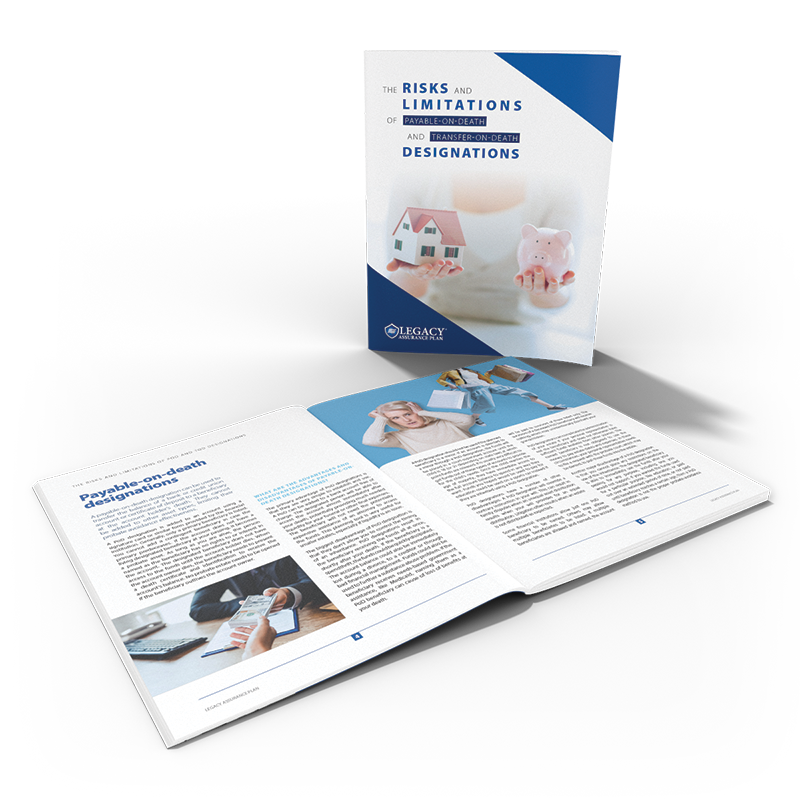What is a pay-on-death designation?
A pay-on-death (PoD) designation names the person to receive the balance in an account on the account owner's passing. They are used to transfer the balance of a bank or credit union account or certificate of deposit. They cannot be used on assets other than bank accounts, which limits their probate avoidance effectiveness. A PoD designation is added to an account using a signature card or similar form provided by the financial institution. When the account owner dies, the beneficiary only needs to present a death certificate and identification to receive the account's balance.
What is a transfer-on-death designation?
Transfer-on-death (ToD) designations transfer the ownership of an account or asset at the death of the owner to the listed beneficiary. Unlike a PoD designation, the account is not automatically liquidated. ToD designations are widely available only for securities and brokerage accounts. In a limited number of states, ToD designations can also be used to transfer automobiles and real estate. A ToD designation is added to a brokerage account using a form provided by a broker, to real estate by recording a deed and to a vehicle by adding a beneficiary to the title at the appropriate agency.
What are the potential issues associated with pay-on-death and transfer-on-death designations?

- Designation controls over contrary instructions in will
- Leaves assets to the wrong beneficiary
- Creates family disputes over an asset distribution different from terms of the will
- Leaves assets to someone younger than you prefer
- Eliminates your control over asset distribution timing
- Prevents limiting the use of the inheritance to education and other goals
- Leaves insufficient resources to pay your estate's debts and expenses
- Defeats your estate planning goals
- Creates a probate asset if the designated beneficiary dies before the account owner
- Subjects the account to divorce or creditor claims
PoD and ToD designations are valuable tools to avoid probate, but they are not the right solution for everyone. You should carefully consider if your distribution plan is simple and direct enough to make them appropriate for your situation or if an alternative probate avoidance strategy is a better choice.



